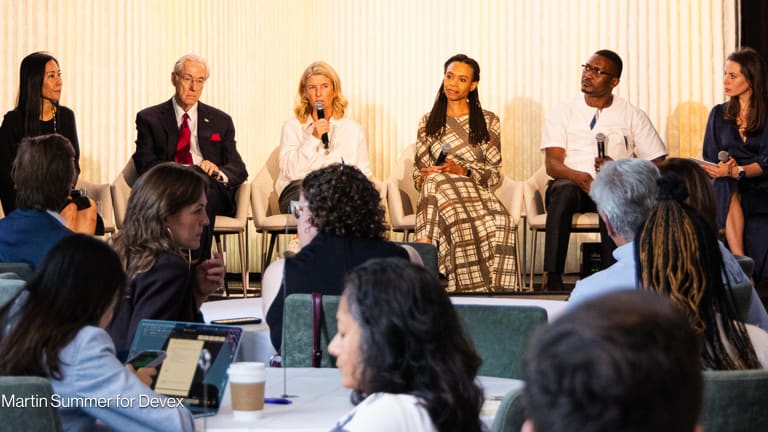On the first day of the United Nations General Assembly’s high-level week, Dr. Elias Zerhouni — former director of the National Institutes of Health under U.S. President George W. Bush’s administration — said he’s “optimistic” that the dire situation currently engulfing global health funding can be reversed.
“The most powerful force is actually patients,” he told Devex President and Editor-in-Chief Raj Kumar. “Human beings talking and saying, ‘This is what's happening at the human level, not at the institutional level.’ It's not the NIH that's suffering. It’s millions of people suffering. You have to make that a reality.”
He pointed out that the U.S. Congress refused to reduce NIH’s budget recently, crediting that to patient groups.
Printing articles to share with others is a breach of our terms and conditions and copyright policy. Please use the sharing options on the left side of the article. Devex Pro members may share up to 10 articles per month using the Pro share tool ( ).








